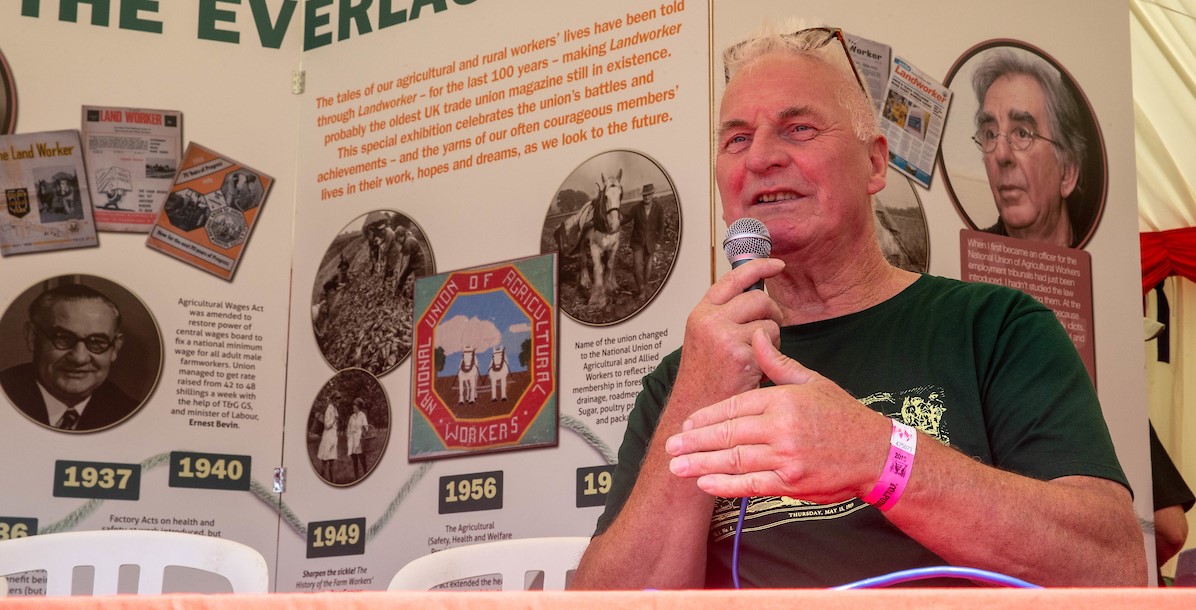Labour’s rural lifeline
Labour has pledged to replace the Agricultural Wages Board with a new taskforce – it revealed yesterday (April 28) in the launch of its new rural manifesto.
Outlining how Labour would ensure an economy that works for people in rural areas, it most significantly includes a pledge to replace the Agricultural Wages Board (abolished by the coalition) with a taskforce that would address low pay and conditions for agricultural workers.
Alongside policies like the energy price freeze, the party’s rural manifesto (read here) includes expanding the powers of the groceries code adjudicator (the supermarket watchdog); cutting rates for small businesses, which employ more than two thirds of the rural workforce; and giving rural communities increased power over bus services.
Maria Eagle, shadow environment secretary said, “The Tory plan is failing hardworking families in rural Britain. Wages are over £4,500 lower than those in urban areas, while at the same time many rural families face higher living costs.
“Labour’s better plan for rural Britain is based on building a rural economy that rewards hard work and shares prosperity. Only Labour has a plan to make our economy work for working people in all of parts of Britain – for those living in rural, coastal and market town communities as well as in cities.”
Quite clearly this government’s economy has not helped working people in rural Britain. With the average annual wages over £4,500 lower than in urban areas, the gap between the two has grown by £1,000 since 2010.
Insecure
The effects of this low-wage, insecure economy have been serious. It seems that no matter how hard people work, many don’t earn enough to make ends meet.
Family life is being squeezed – with energy, transport and childcare costs spiralling – and often leaving rural families paying well above the average rate.
And with all the coalition cuts its rural communities that have been amongst the worst affected by reductions in public services.
Communities feel isolated with poor public transport and inaccessible health and school facilities. House prices are totally out of ordinary workers’ price range – there is inadequate social housing and expensive rented homes are the only option for many.
It’s no wonder many feel that decisions are made at distance in Whitehall and that politics ignores the vital things that matter to them.
Labour believes the Conservatives will never be able to tackle the real challenges facing rural communities because they only stand for a privileged few.
Better plan
Labour says it has a better plan for a better future for working people in rural Britain.
Pledges include its support of a world class, thriving food and farming sector; backing small and medium sized businesses; creating better paid, higher skilled jobs; mending the markets rural families rely on from energy to transport; and delivering the public services that people want in their communities, along with the powers to shape services to their needs.
The news was well received by Unite – who represents thousands of agricultural and rural workers.
Unite national officer Julia Long was pleased to hear of the endorsement of Unite’s long hard-fought campaign to restore pay justice.
“The abolition of the Agricultural Wages Board under this government has made the life of a farm and agricultural workers difficult,” said Julia.
“The coalition snatched away pay protections that previously helped prevent a race to the bottom on wages and conditions in the sector. The government has weakened employment rights and promoted a hire-and-fire culture. Many workers have not had pay rises this year.
“I’m pleased Labour understands our pay needs to be protected and raising wages is good for everyone.”
But the Agricultural Wages Board didn’t just protect wages – connected with it were training, skills development, tied housing – among other important aspects.
Labour says it will further support employers in the sector to raise standards by giving them more control over skills funding and standards. The exchange would be working to increase the number of apprenticeships across the sector. Those free-riding employers that do not train will be stopped.
Labour intends to enable employers to collectively invest in measures to raise pay, productivity and training in the sector without fear of being undercut.
Labour will also take action to stop the race to the bottom in agriculture by banning exploitative zero-hours contracts, so that if you work regular hours you get a regular contract. It will also tackle housing issues.
“The manifesto is definitely welcome news for our members,” said Julia. “They’ve noticed a lot of unfavourable changes since the AWB went and we welcome Labour’s commitments to agricultural and rural workers.
“It’s vital now that Unite members everywhere support Labour and vote on May 7 to stop low pay and make these pledges a reality for agricultural workers.”
 Like
Like Follow
Follow


